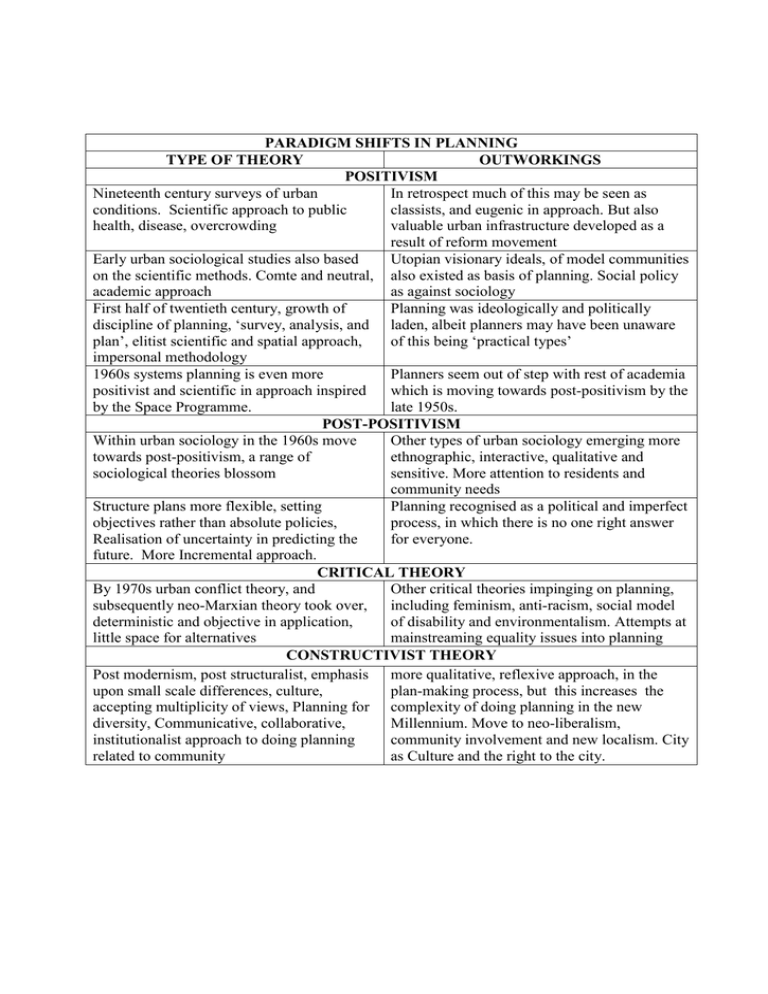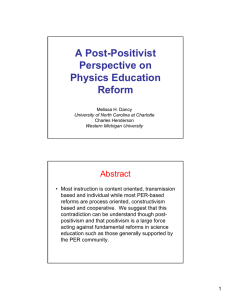Table I.08.02 Paradigm shifts in planning theory Word Document
advertisement

PARADIGM SHIFTS IN PLANNING TYPE OF THEORY OUTWORKINGS POSITIVISM Nineteenth century surveys of urban In retrospect much of this may be seen as conditions. Scientific approach to public classists, and eugenic in approach. But also health, disease, overcrowding valuable urban infrastructure developed as a result of reform movement Early urban sociological studies also based Utopian visionary ideals, of model communities on the scientific methods. Comte and neutral, also existed as basis of planning. Social policy academic approach as against sociology First half of twentieth century, growth of Planning was ideologically and politically discipline of planning, ‘survey, analysis, and laden, albeit planners may have been unaware plan’, elitist scientific and spatial approach, of this being ‘practical types’ impersonal methodology 1960s systems planning is even more Planners seem out of step with rest of academia positivist and scientific in approach inspired which is moving towards post-positivism by the by the Space Programme. late 1950s. POST-POSITIVISM Within urban sociology in the 1960s move Other types of urban sociology emerging more towards post-positivism, a range of ethnographic, interactive, qualitative and sociological theories blossom sensitive. More attention to residents and community needs Structure plans more flexible, setting Planning recognised as a political and imperfect objectives rather than absolute policies, process, in which there is no one right answer Realisation of uncertainty in predicting the for everyone. future. More Incremental approach. CRITICAL THEORY By 1970s urban conflict theory, and Other critical theories impinging on planning, subsequently neo-Marxian theory took over, including feminism, anti-racism, social model deterministic and objective in application, of disability and environmentalism. Attempts at little space for alternatives mainstreaming equality issues into planning CONSTRUCTIVIST THEORY Post modernism, post structuralist, emphasis more qualitative, reflexive approach, in the upon small scale differences, culture, plan-making process, but this increases the accepting multiplicity of views, Planning for complexity of doing planning in the new diversity, Communicative, collaborative, Millennium. Move to neo-liberalism, institutionalist approach to doing planning community involvement and new localism. City related to community as Culture and the right to the city.






